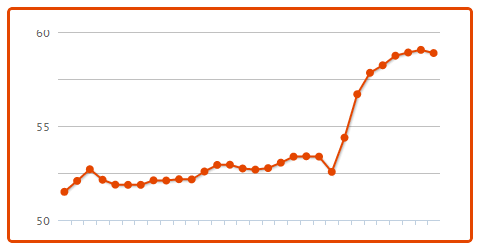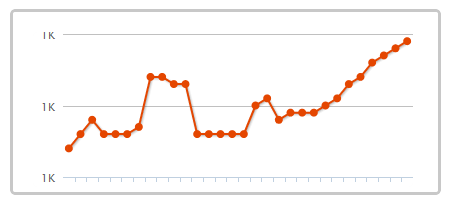Intrigued by Jon DiPietro’s Klout’s Konference Kalculation, I took a look at my own Klout score to see what impact all the events of the past two weeks (FutureM, Berkman Center “Vast Wasteland” session, Inbound Marketing Summit, and DrupalCamp Montreal) might have had.

That’s a big bump in my supposed influence – but doesn’t it really show just how artificial the whole mechanism is? Did I become more influential by attending and tweeting about conferences?
DiPietro pointed out a significant dip in his Klout score, exactly 30 days after WordCamp Boston, where he was busily live-tweeting. I don’t see the same dip (I’ll have to check back in 30 days), though maybe my numbers were never high enough to show the impact in the first place. I did see this weird pattern in the “true reach” segment:

The first bump up corresponds to Aug 29 – Sept 1, then down again, then up on the 7th and 8th of September. Why? I’ve no idea yet, but it doesn’t seem correlated with being 30 days out from anything.
What does any of this prove? Algorithms can only be as smart as the data they have access to and the assumptions of their authors. Klout has access to the number of tweets published by an account, how often those tweets are retweeted, how many twitter followers that account has, etc. Klout doesn’t account for multiple twitter accounts (the official tweets coming from @wordcampboston for example, which has its own Klout score but no impact on mine). Klout also can only indirectly differentiate between the speaker on stage being tweeted about and the person doing the live tweeting – all those listening to the speaker but not tweeting about it don’t count as “reach” for the speaker.
In the end the only conclusion I can draw is that Klout favors the noisy – though if you are so noisy that people unfollow you or report you as spam that may come back to haunt you.
So, want to raise your Klout score? Tweet early and often. Go to events with popular hashtags and post quick snippets from key speakers.